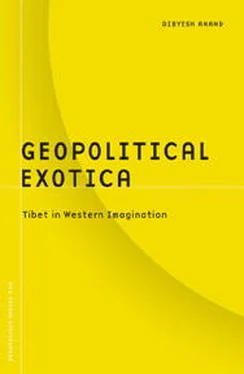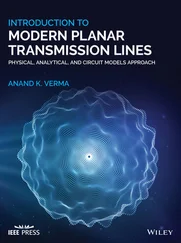Fifth, though for the Tibetans the memory, the ideal, and the image of the land from which they have been exiled have been a vital force in the struggle for national recognition, the notion of return to the homeland is problematic. This problematization should not be seen in terms of a pessimistic scenario in which original Tibet has been destroyed and can never be retrieved. Instead, it guards against any naive imagination of a particularized space-time projection of Tibet as a timeless construct. Of course, this theme of return to the homeland is common to many exiled communities. The Palestinians are a good comparative example. In both cases one sees how the longing for home has changed over time from return to specific villages and particular dwellings to an emphasis on a collective national return to "the homeland" conceived more abstractly. Writing specifically about the Palestinians, Bisharat (1997) points out that in exile there occurs a displacement of a community, once understood as being rooted in particular localities, to the level of the nation (see also Bowman 1994). Homeland is conceived as a moral as well as a geographical location.
Last, the adoption of a different reading strategy also foregrounds the idea of Tibet as a reimag(in)ing construct. Following Anderson's theory of nations as imagined communities (1983), Tibet can be seen as an imagined construct. However, the use of the form imagining rather than imagined indicates that the process of imagination is a continuous one. And then, since the Dharamsala establishment plays a crucial role in shaping this imagining process according to some particular images and representations, I put the "in" within parenthesis. The process is as much one of imaging as it is of imagining. The prefix "re" is to counter any sense of simplistic linearity associated with the process of imagining Tibet as a nation.
However, this theorization of Tibet as a discursive reimag(in)ing does not deny the real desires and feelings of the people toward it. Instead, it promotes a historicization and politicization of such desires and feelings. It calls for special attention to be given to the ways spaces and places are made, imagined, contested, enforced, and reimagined. One needs to accept that given the limited vocabulary available to Tibetans to espouse their cause in the international arena, the use of the somewhat old-fashioned concept of nationalism is perfectly understandable. As Kibreab points out, in a world where rights such as equal treatment, access to resources, and freedom of movement are apportioned on the basis of territorially anchored identities, the identity people gain from their association with a particular place is an indispensable instrument (1999). Though a reimag(in)ing construct, Tibet has a real impact on the lives of many people, and this itself provides legitimacy to those struggling for the self-determination of Tibetans. My discursive theorization does not render this struggle problematic. At the theoretical level it calls for a reconceptualization of basic themes involved in the articulation of a Tibetan identification process as encapsulated within Dharamsala's symbolic geography. And at the level of political praxis, it simply warns against any naive ideas about nationalism, return to homeland, and the like.
CONCLUSION: AFFIRMING TIBETANNESS THROUGH ITS PROBL EMATIZATIO N
By way of a conclusion, I would like to clarify that this postcolonial reading based on a different understanding of the words dharam-shala/dharmashala should not be seen as a simple alternative to the more common story discussed earlier in the chapter, for the political practices embedded within Dharamsala's symbolic geography defy any clear categorization in either of the two conceptual frameworks. My approach appreciates the practical need for espousing Tibetan identity as a strategic essentialism. At the same time, it highlights the need to recognize at a theoretical level the contingent character of these claims. The clear emphasis in my approach is on the "strategic" in the strategic essentialism. A sophisticated postcolonial theoriza-tion of Tibetanness in terms of symbolic geography facilitates such a two-pronged approach, while at the same time recognizing the arbitrariness involved in any distinction between theory and practice or between cultural and political identity discourses. Apart from other things, it also recognizes the politics of Exotica Tibet-the constitutive relation between Western representations and Tibetan identity discourses, that is, between Exotica Tibet and Tibetanness.
To "forget IR theory" (Bleiker 1997) is not to ignore it, for any such attempt will leave intact a disciplinary endeavor that has significant purchase on the understanding and construction of world politics. Rather, this forgetting involves unprivileging the dominant modes of analysis of world politics and learning to think differently. From an IR perspective, the learning process within this book has involved journeying into the exotic thoughtscape of social theory, postcolonialism, diaspora studies, cultural theory, colonial discourse analysis, and Tibetology. The journey led to a shedding of old baggage and picking up of new; it had temporary halts but only an arbitrary beginning and an even more contingent end. The book is, in this sense, a journal of a theoretical and empirical journey.
My analysis has involved three "de-"s (deparochializing, de-constructive analysis, and description) and three "re-"s (representation, reimagining, and retheorizing). After introducing the Tibet question, I set up the argument for a postcolonial IR that seeks to reveal the ethnocentrism and lack of concern for the issues central to the lives of peoples in the non-West of mainstream (and sometimes even critical) IR and to deparochialize them. The rest of my endeavor does not always "use" insights from postcolonialism and IR theory but is inspired by postcoloniality (a postcolonial critical attitude). The examination of the theme of representation in chapter 1 foregrounds my theoretical belief in the discursive constitution of reality. Representation, especially the Western representation of the non-West, is central to the study of IR as it is a crucial dynamic of world politics, often supporting the dominant truth regimes and structures of power. Critical IR has focused mainly on the constitutive function of representation in generating and sustaining particular foreign policy regimes and on the identity politics of the repre-senter. What about the impact of Western representations on the represented? By ignoring this, critical IR leaves itself open to the charge of West-centrism. This work seeks to rectify this and through the empirical study of Western representations of Tibet highlights its productive and restrictive effects on the non-West. Exotica Tibet is theorized in terms of its poetics and politics.
Chapter 2 offers a deconstructive analysis of Western representational practices by studying some common rhetorical strategies of representation. Chapter 3 is a description of how Western interaction, seen as imperial encounter, has a constitutive relation with the imagination of Tibet. Chapter 4 charts the formation of Tibet as a geopolitical entity within the wider context of Western theory and praxis of sovereignty, imperialism, and foreign policy. Finally, the next two chapters retheorize Tibetanness and argue that Tibet is a reimag(in)ing construct. Thus, a postcolonial analysis of the poetics and the politics of Exotica Tibet underlines the importance of critically studying Western representations of the non-West within a deparochialized IR.
My effort here has been to challenge the geographical parochialism of both the mainstream and critical IR endeavors. "Tibet" here stands not only for those who identify with it (the Tibetans) but also as a challenge to critical endeavors in IR as well as to postcolonial theorizing. My attempt has been not only to promote a dialogue between postcolonial theory and IR theory but, more important, to adopt a postcolonial critical attitude-that is, postcoloniality-to offer new, innovative ways of doing IR analyses. Here I am aware that I am deploying "Tibet" to critique certain ways of thinking, in a manner somewhat similar to Orientalists for whom "Tibet" has been only a category to be used, to be deployed for self-serving purposes. My Orientalizing gesture reflects partly my failure to break out of the pernicious mode of thought set up by the dominant West and partly a failure of postcolonial thinking that is forced to respond to the West and its knowledge in its own language, on terms set by it. Where my use is different is in a self-consciousness and reflexivity about it, in a strategic deployment that seeks to write back at dominant modes of analyses and challenge the provincialism-in-the-guise-of-universalism characterizing these modes. An awareness of ethno-centrism leads to greater self- reflexivity, sensitivity for the Other, and an openness to alternative theoretical perspectives. My own position as a non-Tibetan interested observer is acknowledged.
Читать дальше












